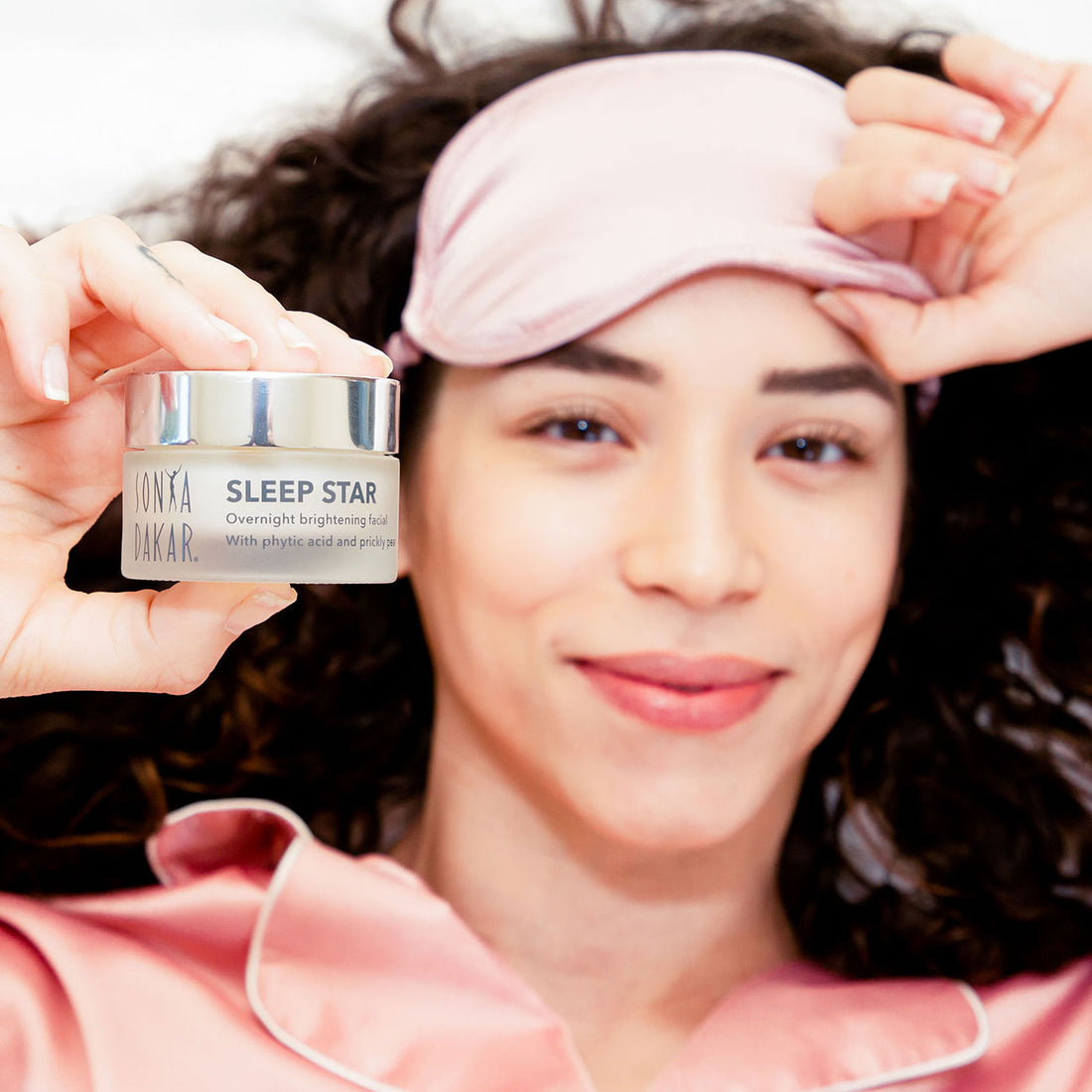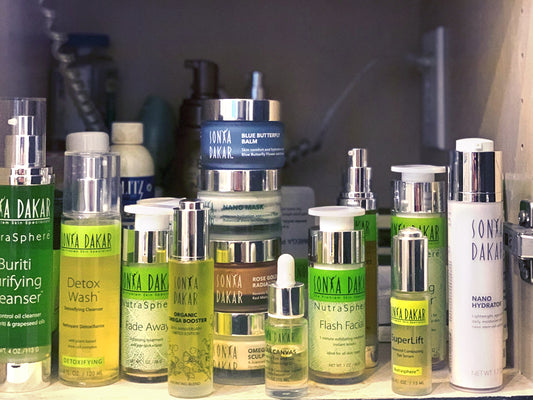
The Best Nighttime Skincare Routine
Beauty sleep is not a myth. There have been numerous studies demonstrating the importance of a good nighttime skin care routine. A study published in The Journal of Clinical and Aesthetic Dermatology found that the skin's collagen synthesis is increased at night, which is important for maintaining skin elasticity and firmness.
An additional study by the Journal of Dermatology sites that the skin's repair mechanisms are more active at night, during the hours of sleep, than during the day. To support your body’s natural repair rhythm, it is important to follow night time skincare steps that will offer you the benefit of healthy and vibrant skin.
Importance of a good night time skin care routine
A nighttime skincare routine is important because the skin goes through a natural repair process while we sleep. During the day, our skin is exposed to various environmental stressors such as pollution, UV rays and makeup. These can cause damage to the skin, clogging pores, and dehydrating the skin. A good nighttime skincare routine allows the skin to repair and rejuvenate itself, while also removing impurities and hydrating the skin.
A good nighttime skincare routine includes:
- Cleansing the face with a natural and gentle face wash to remove makeup and impurities, which can clog pores and cause acne.
- Using a toner to balance the skin's pH levels and prepare it for the next steps.
- Applying a serum or treatment product to target specific skin concerns such as fine lines, wrinkles, and hyperpigmentation
- Moisturizing to hydrate and nourish the skin, preventing dryness and wrinkles.
- Using an eye cream to address issues such as dark circles and puffiness by allowing skin to build collagen in the delicate eye area.
- Using a face oil or facial massage to enhance blood circulation and promote relaxation.
- For targeted solutions, try specialty overnight treatments with Alpha Hydroxy Acids (AHAs) that will expedite the body's exfoliation process to reveal fresh new skin and fade discoloration and dark spots. The use of a rich overnight sleep mask can add an intense boost of hydration, especially during dry weather conditions.
It's important to maintain a consistent routine to give the body the support and tools needed to regenerate and nourish skin. It's also important to note that everyone's skin is different, so tailor your skincare routine to your specific needs.

How does the skin repair itself at night?
The skin goes through a natural repair process while we sleep, which is known as cell regeneration. During the day, our skin is exposed to various environmental stressors such as pollution, UV rays and makeup. These can cause damage to the skin, including inflammation, sun damage, and collagen loss.
At night, the skin's repair mechanisms kick into gear. The body's production of collagen and elastin, the proteins that give skin its elasticity and firmness, increases. Cell turnover also speeds up, allowing for the growth of new, healthy skin cells and the shedding of old, damaged cells.
The body also increases blood flow to the skin, which helps to bring oxygen and nutrients to the skin's surface and remove waste products. This process can help to reduce the appearance of fine lines and wrinkles, and improve the overall texture and tone of the skin.
Moreover, the body temperature is slightly elevated during the night, which helps to open up the pores and allows the skin to better absorb the skincare products applied during the night routine.
It's important to maintain a consistent nighttime skincare routine that includes cleansing, toning, moisturizing, and using products that are appropriate for your skin type and concerns to support the skin's natural repair process.
For dry skin or irritated skin, the use of face oils such as Organic Omega Oil or a hydrating balm such as Blue Butterfly Balm is recommended as part of a night time routine.

How to get the best beauty sleep?
Beauty sleep is not a myth, it’s crucial for the body to have a regular routine to allow it to recover and re energize the skin, build collagen and remove toxins.
Here are some tips for getting the best beauty sleep:
- Stick to a consistent sleep schedule: Try to go to bed and wake up at the same time each day, even on weekends, to help regulate your body's internal clock.
- Create a relaxing sleep environment: Keep your bedroom cool, dark, and quiet, and consider investing in a comfortable mattress and pillow.
- Avoid screens before bedtime: The blue light emitted from electronic devices can suppress melatonin production, making it harder to fall asleep. Try to avoid screens for at least an hour before bedtime.
- Relax before bed: Try to wind down and relax before bedtime. This can include reading a book, listening to calming music, or practicing a relaxation technique such as yoga or meditation.
- Avoid caffeine and alcohol before bed: Caffeine and alcohol can disrupt sleep, so it's best to avoid them in the evening.
- Exercise regularly: Regular physical activity can help to improve sleep quality, but try to avoid vigorous exercise close to bedtime.
- Try to avoid eating large meals or snacking close to bedtime, a heavy meal can disrupt your sleep and make you feel uncomfortable.
- Consider using a humidifier in your room: Dry air can cause skin to become dry, which can lead to wrinkles and irritation. Using a humidifier can help to keep the skin hydrated and healthy.
- Use a silk pillowcase, they are less absorbent than cotton pillowcases, which can help to keep your skin and hair moisturized while you sleep.
Remember, everyone's sleep needs are different, so it's important to experiment to see what works best for you. And if you have persistent sleep problems, it's always a good idea to consult with a medical professional.
Click here for recommendations for the appropriate morning skincare routine.




